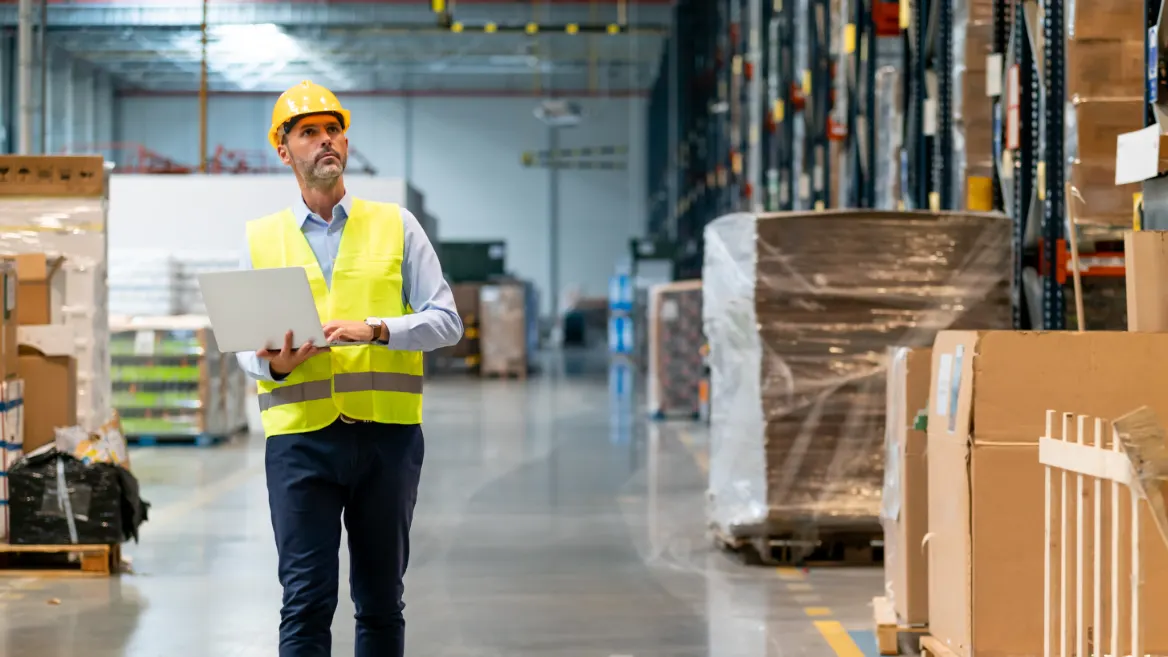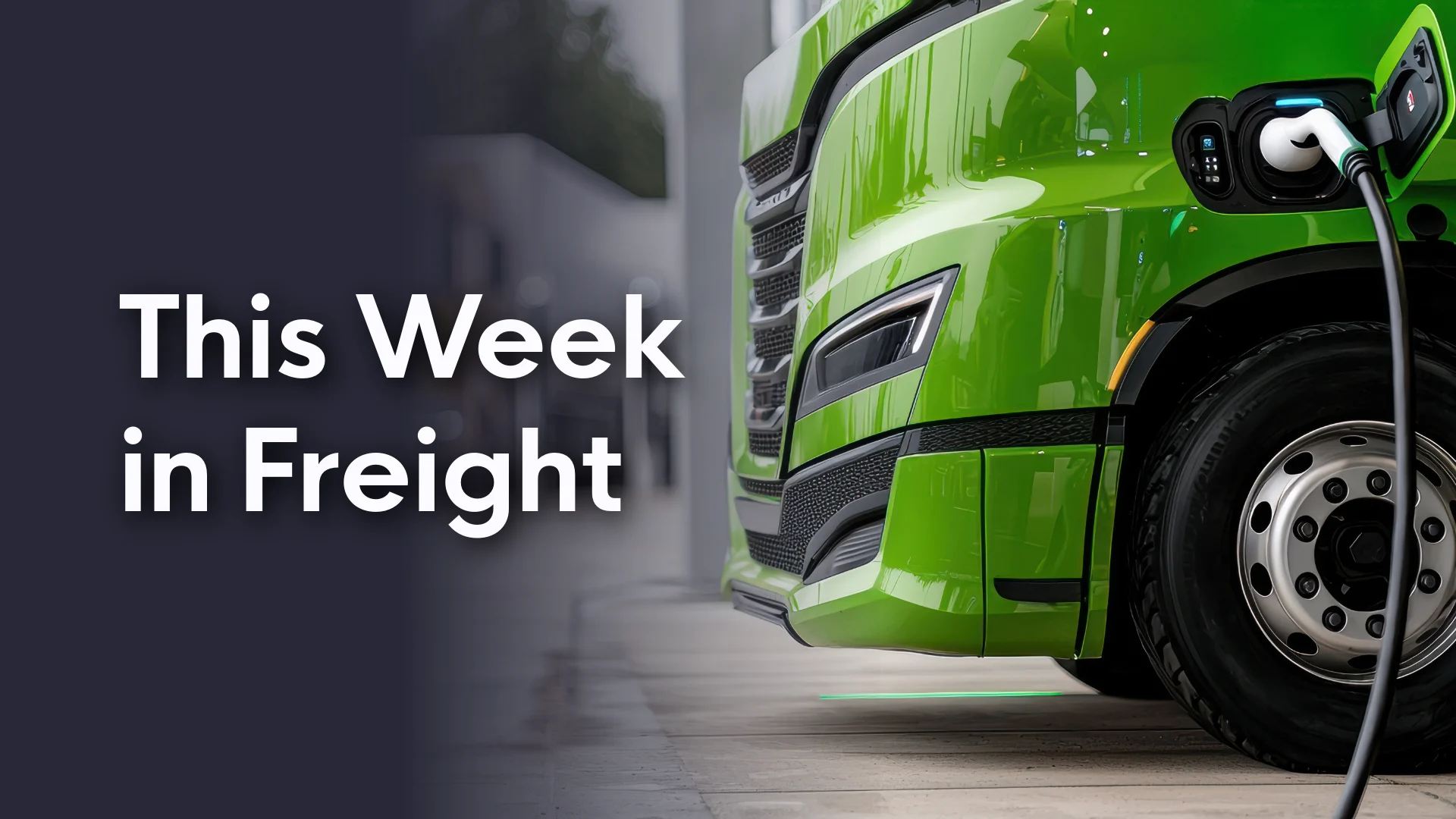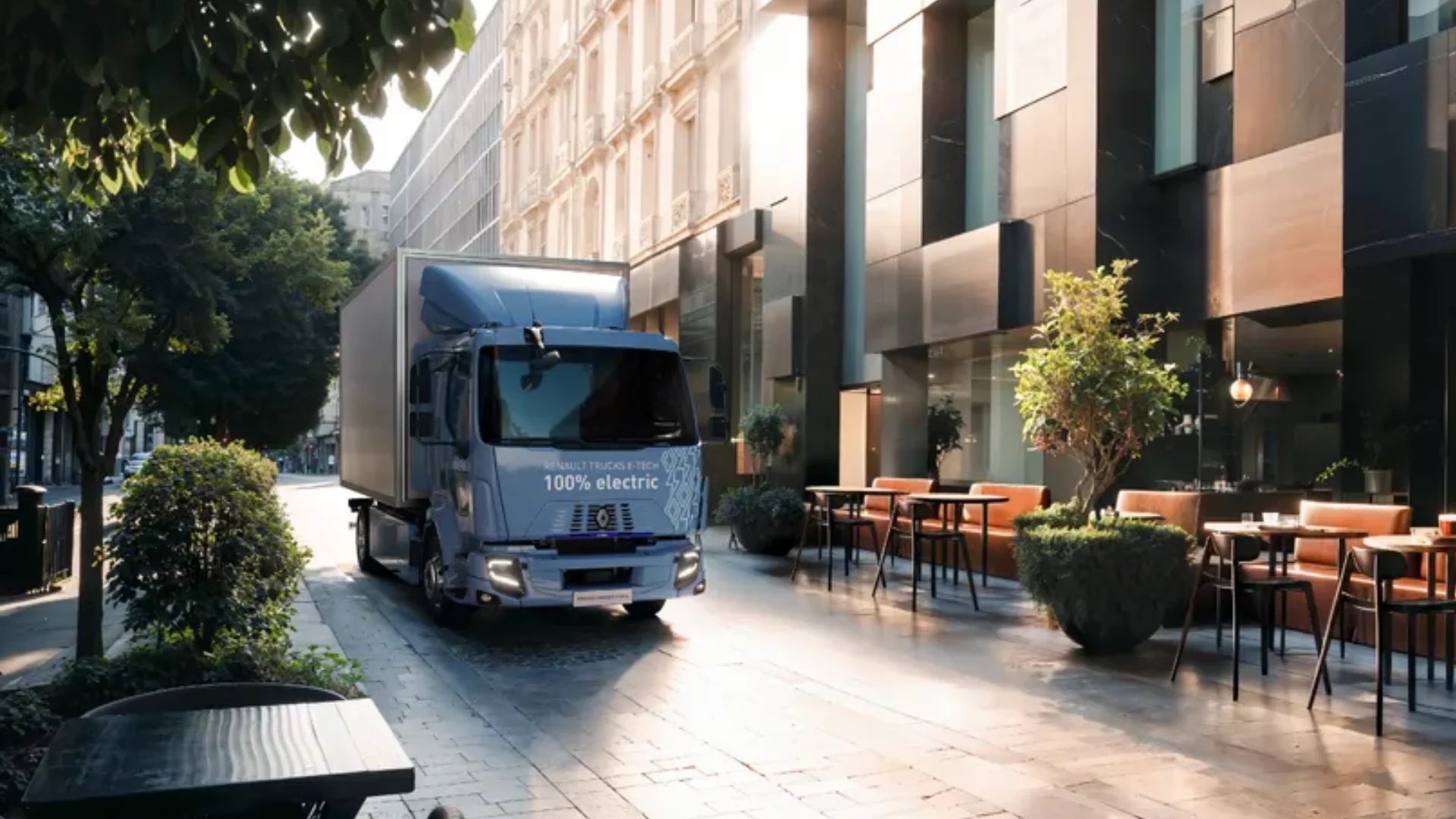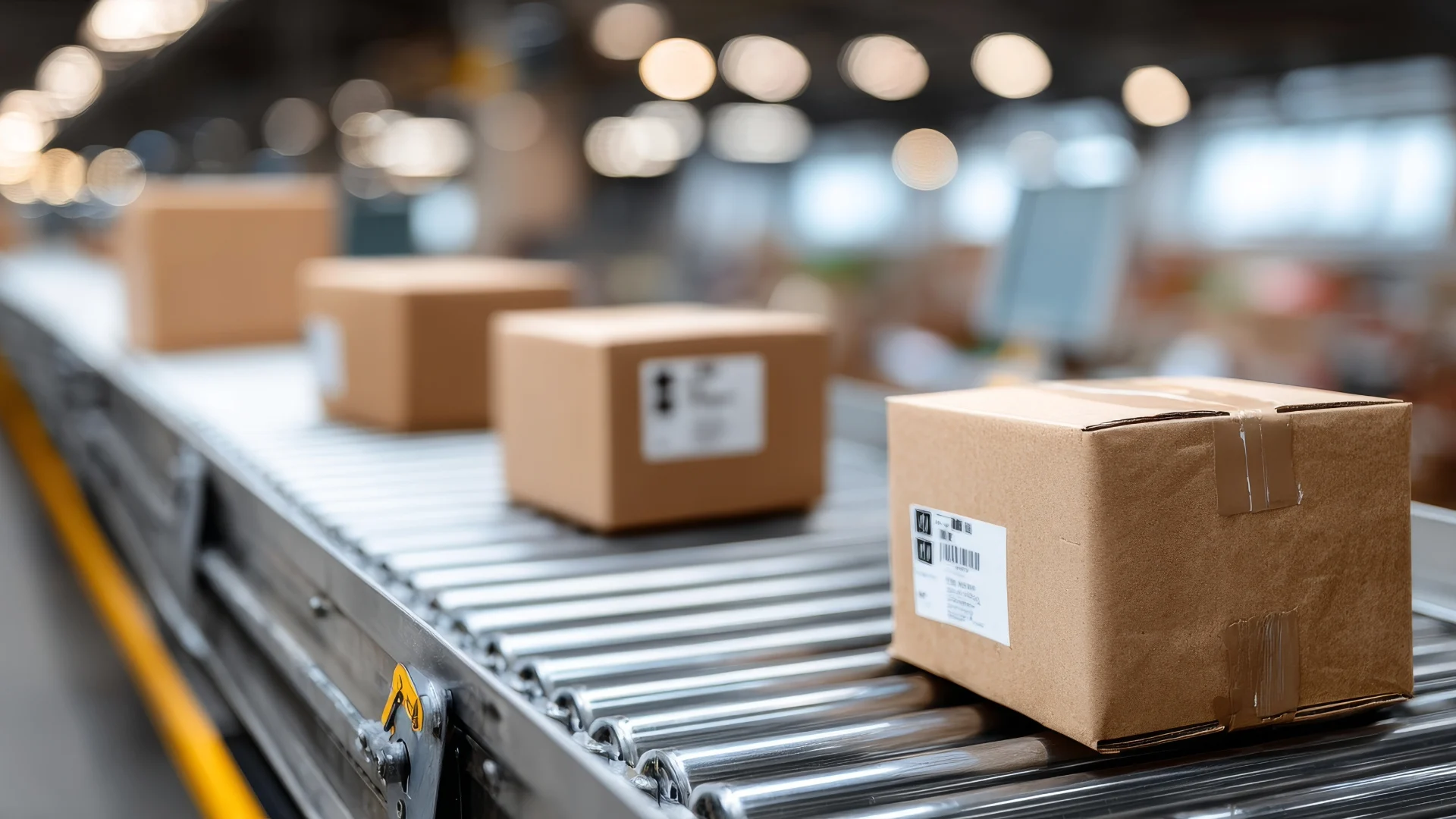In haulage and logistics, reliability is everything. Clients need confidence that their goods will be handled safely, securely and on time. But in a competitive market, how do you prove your business meets the highest standards?
That’s where ISO accreditations come in. They help logistics operators demonstrate professionalism, compliance and quality — all backed by internationally recognised standards.
Whether you’re a small haulage company tendering for new contracts or a national logistics provider looking to streamline operations, this guide explains everything you need to know about ISO accreditations for haulage, how they work and which ones matter most.
What we’ll cover
Fleets, bookings, subcontractors, compliance & payments.
With HX, you can manage them all in one place.
What are ISO accreditations, and how do they work?
ISO stands for the International Organization for Standardization — a global, independent body that develops standards to ensure quality, safety and efficiency across almost every industry.
An ISO standard defines the best practice framework for a particular area (like environmental management or information security).
An ISO accreditation (also called certification) proves that your business meets that framework, verified through an external audit.
Accreditation involves:
- Implementing ISO requirements across your operations.
- Undergoing an independent audit by an accredited certification body.
- Maintaining compliance through regular reviews and recertification every few years.
ISO accreditations aren’t legally required, but many logistics clients, local authorities and national contracts expect suppliers to hold at least one — especially ISO 9001 and ISO 14001.
For hauliers, warehouses and depots, these accreditations provide structure, consistency and trust. They show customers and partners that you don’t just promise quality — you can prove it.
Why ISO accreditations matter for haulage and logistics
The haulage and logistics industry relies on coordination, compliance and communication. Any breakdown in these areas — a delayed shipment, an unsafe depot, or a lost data file — can have serious consequences.
ISO accreditations help to prevent those problems by creating repeatable, auditable processes across your organisation. But beyond compliance, they also deliver measurable business value:
- Win more contracts – Many large shippers and 3PLs only work with ISO-accredited suppliers.
- Reduce risk and liability – Standardised procedures minimise accidents, data breaches and errors.
- Improve efficiency – Better processes lead to fewer delays, smoother workflows and less waste.
- Strengthen reputation – ISO certification signals professionalism to customers, partners and haulage insurance providers.
- Support sustainability – Environmental and energy standards help reduce HGV carbon emissions and improve reporting.
For fleet operators, ISO standards complement other haulage accreditations such as FORS (Fleet Operator Recognition Scheme) or DVSA Earned Recognition. ISO provides the global framework; these national schemes build on it for specific transport compliance.
The ISO accreditations most relevant to logistics
There are more than 24,000 ISO standards worldwide, but only a handful directly impact the logistics sector. Below are the key ones every haulage or logistics company should know — along with how they apply in practice.
ISO 9001:2015 — Quality management
Focus: Quality, consistency and continual improvement.
ISO 9001 is the most widely recognised quality management standard in the world. It ensures that every part of your operation — from booking a load to delivering it — follows defined, repeatable procedures.
For logistics businesses, ISO 9001 proves you can meet customer expectations consistently. Many public sector and corporate contracts require it as a minimum.
It also encourages a culture of improvement: regular reviews, internal audits and data-driven decisions that help you refine performance year after year.
ISO 14001:2015 — Environmental management
Focus: Reducing environmental impact and promoting sustainability.
With growing emphasis on greener supply chains, ISO 14001 helps logistics companies monitor and minimise their environmental footprint.
This can include reducing fuel consumption, managing waste at warehouses and depots, improving route efficiency or switching to sustainable HGV fuels.
Holding ISO 14001 shows you take sustainability seriously — a major plus in tender evaluations and ESG reporting.
ISO 45001:2018 — Occupational health and safety
Focus: Protecting staff and reducing workplace incidents.
In haulage, safety isn’t optional. ISO 45001 provides a structured framework to identify hazards, assess risks and prevent accidents — whether in warehouses, on loading bays or during deliveries.
Accredited companies can demonstrate proactive management of driver fatigue, vehicle maintenance and manual handling risks. It also supports compliance with the UK Health and Safety at Work Act and can lower insurance premiums by reducing claim likelihood.
ISO 27001:2022 — Information security management
Focus: Protecting business and customer data.
Modern logistics is digital. You handle booking systems, payment data, telematics and customer records daily. ISO 27001 helps safeguard that information through strict controls on data access, storage and cyber-resilience.
For freight forwarders, transport management systems or SmartPay-enabled operators, this standard reassures partners that sensitive data is safe — essential in an age of rising cyber threats.
ISO 39001:2012 — Road traffic safety management
Focus: Reducing accidents and improving fleet safety.
ISO 39001 targets one of the biggest risks in haulage: road safety. It establishes procedures for monitoring driving performance, analysing incident data and improving journey planning.
Fleet managers use it to track key metrics such as collisions, near-misses and driver training. Implementing ISO 39001 demonstrates your commitment to keeping drivers — and other road users — safe.
ISO 28000:2022 — Supply chain security management
Focus: Protecting cargo and ensuring secure logistics.
This logistics ISO accreditation focuses on supply chain security — particularly for operators handling high-value or sensitive goods. It covers risk assessment, traceability, storage security and crisis response planning.
ISO 28000 accreditation is especially useful for international hauliers and logistics providers working with bonded warehouses, ports or airports.
ISO 50001:2018 — Energy management
Focus: Efficient energy use and cost reduction.
ISO 50001 helps logistics companies manage and reduce energy consumption across depots, fleets and buildings. It sets up systems to monitor fuel and electricity use, identify inefficiencies and measure improvements.
In an era of high fuel costs and carbon targets, this ISO standard supports both financial savings and sustainability credentials.
ISO 22301:2019 — Business continuity management
Focus: Keeping operations running during disruptions.
From IT failures to extreme weather, logistics operations face constant risk of disruption. ISO 22301 ensures your business can continue critical functions — like customer communication, load tracking and invoicing — during a crisis.
It helps you prepare contingency plans, backup systems and recovery processes to minimise downtime and maintain service reliability.
Supporting ISO standards for advanced logistics operators
Once the core standards are in place, some logistics businesses adopt additional ISO frameworks to strengthen customer relationships and governance:
- ISO 10002 – Customer satisfaction and complaints handling.
- ISO 26000 – Social responsibility guidance.
- ISO 31000 – Risk management principles and framework.
These aren’t mandatory but demonstrate maturity and leadership in how your business manages stakeholder expectations.
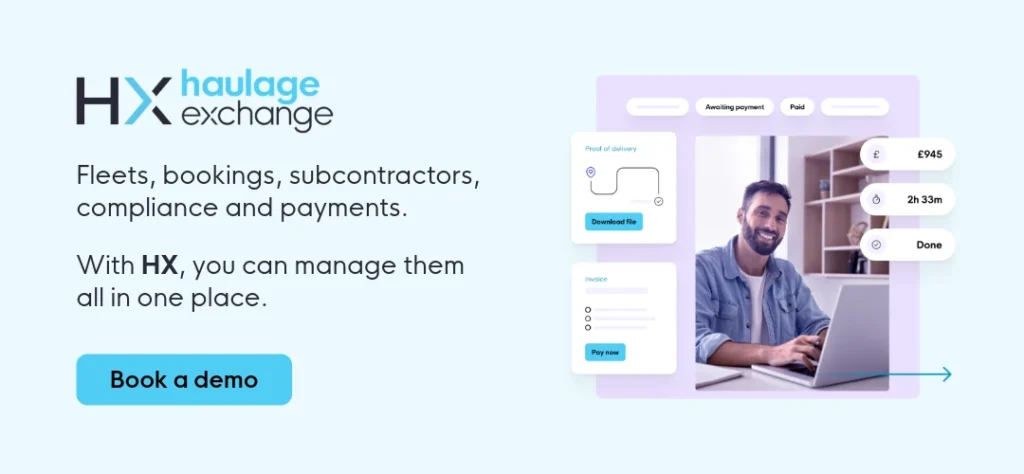
How to get ISO accredited for your haulage or logistics business
Getting ISO accredited can seem daunting, but it follows a clear process.
Most logistics companies complete their first accreditation within three to six months, depending on complexity.
Step-by-step process
- Choose the right standard(s). Start with the most relevant to your goals — usually ISO 9001 or ISO 14001 — and expand later.
- Conduct a gap analysis. Compare your current processes against the ISO requirements. Many certification bodies offer a pre-audit or consultancy service.
- Implement improvements. Create or update policies, training and documentation to align with the standard.
- Perform internal audits. Review your systems and fix any issues before the external audit.
- Undergo certification. An accredited body audits your business to confirm compliance. If successful, you receive your ISO certificate.
- Maintain and improve. ISO isn’t one-and-done — you’ll have annual surveillance audits and full recertification every three years.
Choosing a certification body
Always select a UKAS-accredited certification provider (the United Kingdom Accreditation Service).
UKAS accreditation ensures your certificate is genuine and internationally recognised.
Costs and practical considerations
The cost of ISO accreditation varies depending on your company’s size, number of sites and chosen standards.
Here are some typical ballpark figures for accreditation in the UK:
- Small operator (1–10 employees): £2,000–£4,000
- Medium operator (11–50 employees): £4,000–£7,000
- Large logistics group: £7,000–£10,000+
There’s also an ongoing annual audit or maintenance fee, usually lower than the initial certification cost.
While the upfront cost can feel significant, most logistics companies find ISO accreditation pays for itself through:
- Higher-value contracts
- Reduced accidents or claims
- Better efficiency and lower energy use
- Improved customer retention
Some regional business growth programmes or environmental funds may offer grants or subsidies to support ISO certification, especially for ISO 14001 or ISO 50001.
How ISO accreditations compare to other haulage standards
The UK transport industry already recognises several voluntary schemes, including:
| Accreditation | Focus | Comparison to ISO |
|---|---|---|
| FORS (Fleet Operator Recognition Scheme) | Fleet safety, emissions and driver standards | Practical fleet-based focus. ISO 9001 and 45001 complement it by adding structured management systems. |
| DVSA Earned Recognition | Compliance with vehicle maintenance and safety | Focused on legal compliance; ISO adds a broader quality and process framework. |
| RHA Audits / Logistics UK Schemes | Operational and safety performance | Often aligned with ISO principles — businesses holding both demonstrate strong governance. |
In short: FORS and similar schemes show compliance within UK transport; ISO proves excellence on a global scale.
Maintaining your ISO accreditation
Accreditation isn’t just a certificate — it’s an ongoing commitment.
To keep your ISO accreditation, you’ll need to:
- Conduct annual internal and external audits.
- Review KPIs and incident data for continual improvement.
- Keep documentation, training and safety records up to date.
- Re-certify every three years to demonstrate continued compliance.
Embedding ISO principles into everyday operations ensures your standards remain part of the business culture, not a one-off exercise.
Building a stronger, safer, smarter logistics business
For logistics professionals, ISO accreditations are more than a badge of honour. They’re a framework for running safer, more efficient and more sustainable operations.
From ISO 9001’s focus on quality to ISO 39001’s emphasis on road safety, these standards help transport companies of every size compete on professionalism — not just price.
And as sustainability and compliance expectations grow across the supply chain, ISO-accredited logistics businesses will stand out for the right reasons: trusted, transparent and ready for the future.
Common questions about ISO accreditations
What is ISO accreditation in logistics?
It’s an independent certification proving your logistics operation meets globally recognised standards for quality, safety, or environmental performance.
Which ISO accreditations are most relevant for haulage companies?
The most common are ISO 9001, 14001, 45001 and 39001 — covering quality, environment, health & safety, and road safety.
How long does ISO accreditation take?
Usually between three and six months, depending on business size and readiness.
Is ISO accreditation mandatory for logistics businesses?
No, but many bigger clients, such as the public sector, require it as a condition of contract.
How often do you need to renew your ISO accreditation?
You’ll have surveillance audits each year and a full recertification every three years.
